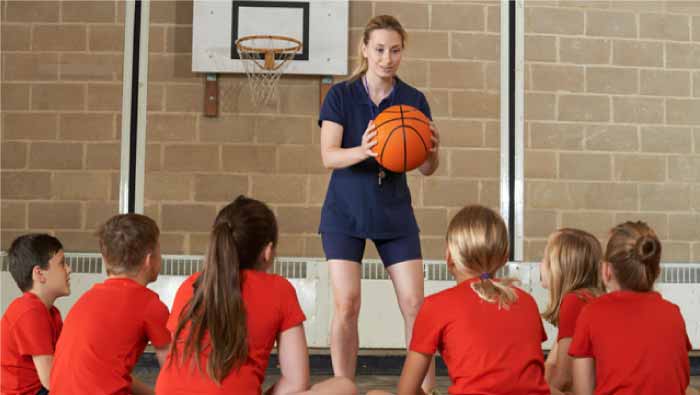The role of sports in education and skills development.
Sports in education can play a very important role in developing people’s skills, especially young people.
Participation in sports can help improve physical and mental health, foster teamwork and leadership, and teach important skills such as resilience and empathy.
Here are some ways sports can be beneficial:
Promote physical activity
Yes, sports promote physical activity as they involve physical movements and bodily effort. Participation in sports can help improve endurance, muscle strength, coordination, flexibility, and other important physical skills. In addition, sports can be a fun and motivating way to stay active and fit, which can have long-term health benefits. Regular physical activity can also help prevent chronic diseases such as obesity, diabetes, and cardiovascular disease, and improve emotional and mental well-being.
Encourage teamwork
Yes, sports encourage teamwork as they require participants to work together to achieve a common goal. In team sports, for example, players must collaborate and communicate effectively to achieve victory. Every player has an important role to play, and it is necessary for everyone to work together and support each other to achieve success. Even in individual sports, such as tennis or athletics, participants often have coaches and support teams that help them improve their performance. Learning to work in a team can be a valuable skill in many aspects of life, and sports can be a great way to foster and improve these skills.
Develop social skills
Yes, sports can help develop important social skills. Participation in sports can provide opportunities to interact with other players, coaches, and spectators, which can help participants improve their social and communication skills. Some social skills that can be developed through participation in sports include empathy, compassion, respect for others, tolerance, the ability to work in a team, conflict resolution, and decision-making.
In addition, sports can help young people develop social skills related to emotional management and self-confidence. For example, when facing competitive situations, participants can learn to deal with stress and pressure, manage frustration, and maintain a positive attitude.
Sports can provide opportunities for participants to develop important social skills, which can be beneficial for their personal and professional development.
Teach leadership skills
Yes, sports can teach important leadership skills. Leaders in sports, whether it’s the team captain or coach, are responsible for motivating players and making important decisions. Sports participants can learn leadership skills by observing and working with effective leaders, and by taking on leadership roles themselves.
Some leadership skills that can be learned through participation in sports include:
Decision making: In sports, leaders often have to make quick and effective decisions in pressure situations.
Conflict resolution: In a sports team, disagreements and conflicts can arise between players. Leaders can learn how to resolve these conflicts effectively to keep the team together and focused on the common goal.
Effective communication: Leaders should communicate clearly with other team members to make sure everyone is on the same page and working together to achieve the common goal.
Motivation: Effective leaders can motivate team members to do their best and work hard to achieve goals.
In short, sports can provide opportunities for participants to learn important leadership skills, which can be beneficial to their personal and professional success.
Promote resilience
Yes, sports can promote resilience as they often involve facing challenges and obstacles that can be difficult to overcome. Sports participants can learn to cope with adversity and bounce back from defeats. Some ways sports can promote resilience include:
Overcoming obstacles: Sports can present many obstacles, such as injuries, limited playing times, or fierce competition. Participants can learn to overcome these obstacles and move forward.
Learning from mistakes: In sports, mistakes are inevitable. Participants can learn to accept and learn from mistakes, rather than be discouraged by them.
Strengthen mindset: Sports can help participants develop a strong, goal-focused mindset, which can help them overcome adversity.
Accept uncertainty: In sports, the final outcome can be uncertain until the end. Participants can learn to accept uncertainty and stay focused on what they can control.
Sports can provide opportunities for participants to build resilience, which can be beneficial in many areas of life. By learning to face challenges and overcome adversity in sport, participants can develop the ability to overcome obstacles in other areas of their life as well.
Professional athletes in another field
Many professional athletes have shown that they have skills that allow them to excel in other fields, such as business, politics and entertainment.
For example, some athletes have used their fame and success in sport to establish successful careers in business. Some have created their own brands of clothing or sports products, while others have invested in technology or real estate companies. Some examples of successful athletes in business include Michael Jordan, who founded his own footwear and sportswear brand, and LeBron James, who has invested in several technology and media companies.
In addition, some athletes have dabbled in politics, using their influence to promote important causes and to defend their interests. For example, Brazilian soccer star Romário Faria was elected as a senator in Brazil, while former Italian basketball player and businessman Massimo Ferrero has been elected mayor of a city in Italy.
Finally, some athletes have used their fame and success in sports to venture into the entertainment industry. Many have acted in movies or TV shows, while others have dabbled in music or comedy. Some examples of athletes who have been successful in entertainment include Dwayne “The Rock” Johnson, who has acted in several Hollywood films, and Shaquille O’Neal, who has dabbled in music and comedy.
Many professional athletes have shown that they have skills that allow them to excel in other areas, suggesting that the skills and values that can be learned through participation in sports can be beneficial in many areas of life.
Athletes with university professions
There are many athletes who have earned college degrees while competing at the professional level. Often, these athletes recognize the importance of getting an education and preparing for life after sport.
Examples of athletes who have earned college degrees include:
Myron Rolle
He is a former football player who played in the NFL and earned his degree in neuroscience from Florida State University before earning a scholarship to study at Oxford University.
Grant Hill
He is a former basketball player who earned his degree in history at Duke University before playing in the NBA. Hill has also served on the NBA Board of Governors and is a minority owner of the Atlanta Hawks.
Candace Parker
She is a professional basketball player who plays in the WNBA and earned her degree in Communications from the University of Tennessee.
Tim Duncan
He is a former NBA basketball player who earned his degree in psychology from Wake Forest University before being drafted in the NBA draft.
Natalie Coughlin
She is an Olympic swimmer who earned her degree in psychology from the University of California, Berkeley.
Steve Nash
He is a former basketball player who played in the NBA and who earned his degree in Sociology from Santa Clara University.
Kristi Toliver
She is a professional basketball player who plays in the WNBA and earned her degree in Communications from the University of Maryland.
Brandon Weeden
He is a former football player who played in the NFL and earned his degree in Business Administration from Oklahoma State University.
Edwin Moses
He is a former Olympic athlete who won gold medals at the 1976 and 1984 Olympics and earned his degree in physics from Morehouse University.
Julie Foudy
She is a former soccer player who won two Olympic gold medals and earned her degree in biology from Stanford University.
These athletes show that it is possible to balance high-level sport and university education and that both can be important for success in life. University education can provide valuable skills and knowledge that can be useful in life after sport and can be a way to prepare for a career after sport.


